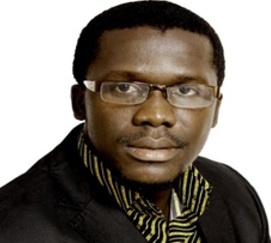 Tweneboah Senzu, Director of Bastiat Ghana Institute
Tweneboah Senzu, Director of Bastiat Ghana Institute
Dr Emmanuel Tweneboah Senzu, Executive Director of Bastiat Ghana Institute, has urged managers of the economy to start the country’s economic transformation agenda from the community level by empowering small scale entrepreneurs.
He noted that the small scale entrepreneurs control large share of the country’s resources and employ significant number of the unemployed youth but they are often left out in the nucleus of planning the national economy.
“Our Journey as Bastiat Ghana is a tough one because we know to deal at the community level of transformation and empowerment is the right thing to be done to transform the economy,” Dr Senzu told journalists at a briefing on Tuesday.
He said: “It is a long term agenda which will cost politicians so much, to have the will power to implement realistic agenda for change in their short period of office mandate.”
He said BGI, which is a liberal economic think tank, is willing to commit labour efforts and resources to support the revolutionalisation of what he called “the community based mentality and commitment towards reforming the economy”.
“We are also willing to partner any government, while we stay politically neutral, partner successful entrepreneurs and donor agencies that believe, it is possible to empower the economy of Ghana to be independent of itself,” he added.
He said it is incumbent on Ghanaians and national leaders to work towards binging Ghana back to a strong economic independence state.
The institute called on charismatic churches to minimise miracle encounter philosophical doctrines, which, it said causes most of “our ignorant people to over rely actions of men to the hands of supernatural powers making them unconsciously lazy”.
“It is proven by the holy book in several circumstances that attest that, ‘heaven is only ready to help those who help themselves’, to us Bastiat Ghana, we believe, the role the church and spiritual centres of Africa for economic development could never be underestimated,” he said.
He noted that the kind of teachings from the church would give birth to the kind of efficient labour force the country could rely upon to drive the economic agenda.
“Therefore, our research findings depict the correlation between operations of the church and political-economic management of the country Ghana,” he added.